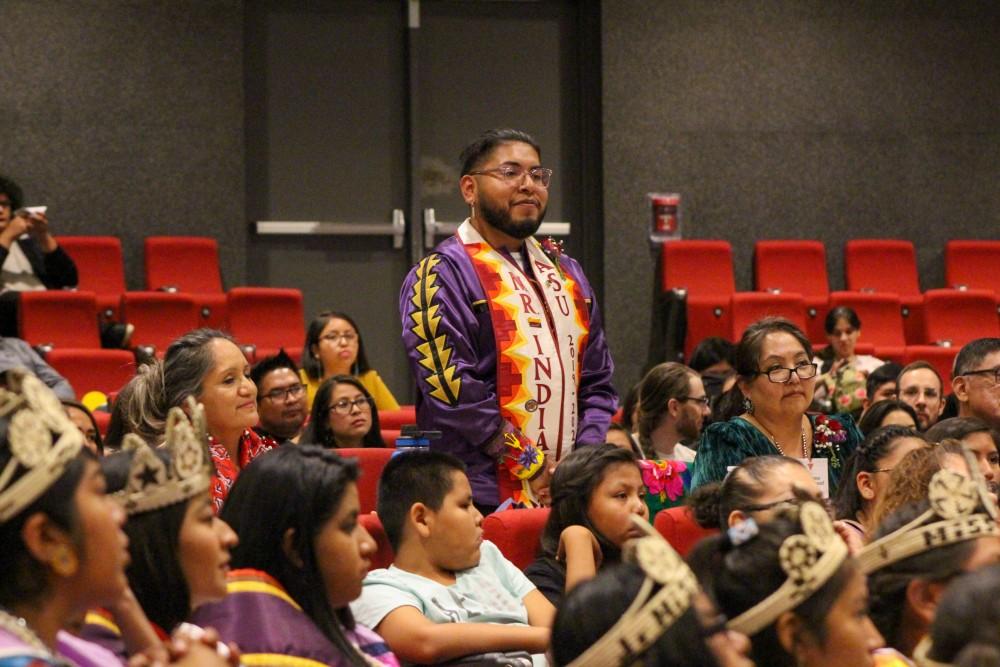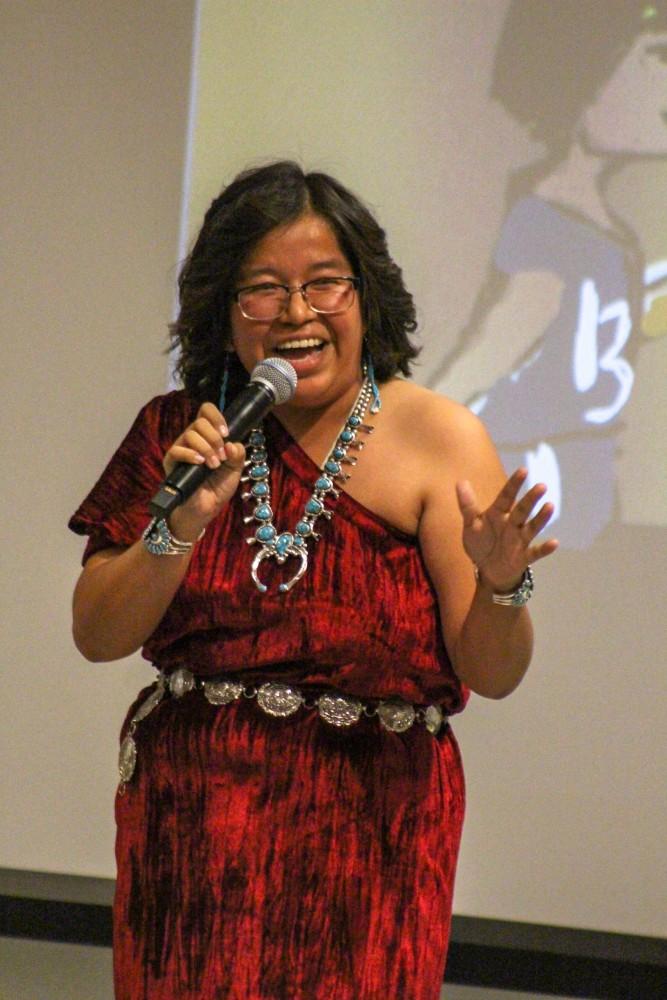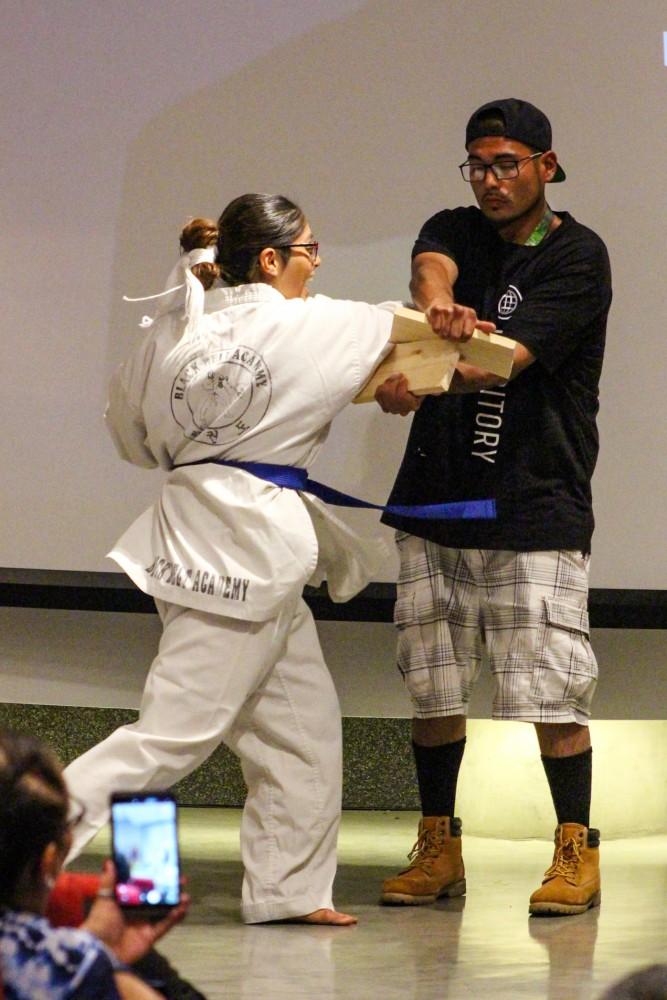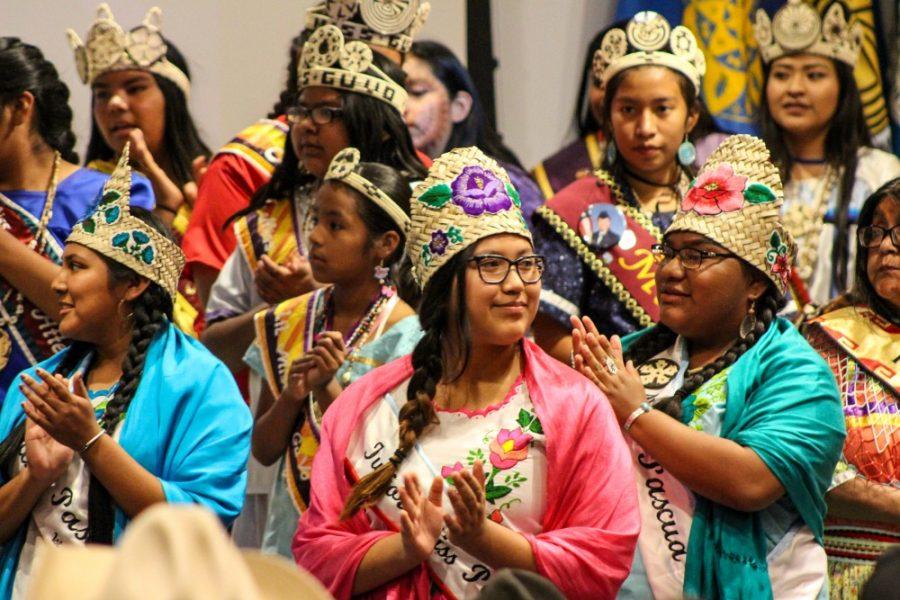For the past 39 years, the Miss Native American University of Arizona Pageant has brought together indigenous and educational communities on campus.
Miss Native American UA Pageant is an open event celebrating women ambassadors and Native American communities. It serves as a platform to highlight indigenous culture, heritage and inclusion through community involvement.
Accompanied by UA Wildcat Nation Drum Group playing traditional songs for the event, this year’s pageant was held at the Environment and Natural Resources 2 Building on Oct. 26.

Denice Tsinajinie, a criminal justice major from Saint Michaels, Ariz., was crowned Miss Native American University of Arizona 2019-2020 at the pageant.
“I just personally want to thank my family for supporting me,” Tsinajinie said in her coronation speech. “This is my second year running and I just want to say thank you for everything, for the encouraging words.”
Tsinajinie also went on to congratulate her fellow pageant ambassadors during the speech.
“I also want to thank the Miss Native UA ambassadors as well,” Tsinajinie said. “We committed two months into this and every weekend, putting our heart and effort into it, and they did an amazing job.”

RELATED: Students organize event to celebrate Indigenous Peoples’ Day
At the pageant, Jonathan Rios, UA American Indian Alumni club president, welcomed the attendees with his opening speech. He reflected on the previous contestants from the past 39 years.
“That’s 39 powerful, strong, indigenous women along with our court that have gone through this pageant system and acknowledged and represented the university each and every year,” Rios said.
Rios mentioned the relationship the AIA club has with the pageant by helping host the event and directly assisting the participants in their educational pursuits.
“We look forward to working with our women on campus to develop them into future alumni when they graduate from the university,” Rios said.
This year’s pageant contestants included Elicia Jordan, a criminal justice major from Oak Springs, Ariz.; Thelma Scott, a speech, language and hearing science major from Chinle, Ariz.; and Deshawna Sherlock, a care, health and society major from Shonto, Ariz. As well as Reyna Perez, a family studies and human development major from Winslow, Ariz., who was crowned as First Attendant at the pageant.
The pageant was composed of three categories for participants to be judged on: talent, a professional presentation of an advocacy they support and an impromptu question from the judges.
Participants are not only ambassadors representing the UA Native American community, but the state and nation as well. As role models in the community, they also advocate for a cause they are passionate about. Some of these causes include health, nutrition, self-defense and the issue of missing and murdered women in indigenous communities.

RELATED: College of Law’s program emphasizes tribal law and human rights work
Karen Francis-Begay, assistant vice president of UA Tribal Relations, served as the mistress of ceremonies for the event.
Francis-Begay explained during the pageant the duties of the ambassadors and what they represent in the community.
“They will demonstrate their pride and their culture, but also I think a lot of dedication and hard work that they’ve earned along the way to be here getting a college education and pursuing their dreams,” Francis-Begay said. “They’re our future leaders — future leaders of our communities, so we should all be very proud of them.”
IngriQue Salt, a coordinator for the pageant, discussed the importance of ambassadorship and inclusion.
“Pageantry is very much a Western concept, and so, therefore, we are advocating for ambassadors as you all are here,” Salt said. “As you heard from our First Attendant, you do not need a sash or a crown.”
Salt is also a project coordinator for the UA Indigenous Teacher Education Project and spoke on the changes and growth the ambassadors had made during their pageant training.
“You all are pursuing higher education, you are looking for ways to better yourself because you want to initiate some form of change within your community, within your families as an individual,” Salt said. “These ladies, they are really creating sisterhood. They are getting to know one another and we are breaking down barriers.”
Follow Desiree Guerrero on Twitter









